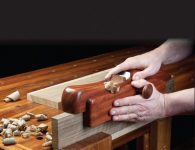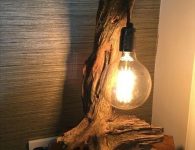

Liz Bohannan, the founder of social enterprise Sseko Design, has written a book sharing her entrepreneurial journey over the past decade.
Liz Bohannan
Liz Bohannan has been running Sseko, a socially conscious fashion brand that makes leather goods, apparel and footwear, for the past decade. The company now hires 63 full-time staff in Uganda and funded over 100 university scholarships for women there. She’s recently written about her entrepreneurial journey in a new book, Beginners Pluck: Build Your Life Of Purpose And Impact Now.
Chhabra: Can you explain the business model behind Sseko?
Bohannon: We hire academically gifted young women in Uganda and employ them in a work-study program that enables them to earn an income that will go directly towards their college educations. In an effort to democratize impact entrepreneurship and help women here at home build lives of purpose, passion and impact, we recently shut down our traditional wholesale business and launched the Sseko Fellows program. Our products are now sold through a community of women in the U.S. who share the Sseko story, style their friends and earn an income.
Chhabra: Your book is about building a life of purpose, passion and lasting impact. How did you come to writing a book about this?
Bohannon: As part of my work in running Sseko Designs, I’ve traveled the world, speaking to and hearing from tens of thousands of people who deeply desire to build lives that have purpose and that make an impact. Yet, the vast majority of people I meet feel stuck, overwhelmed and demoralized. I realized that so many of the messages people are hearing on a daily basis like “Find your passion!” and “You are so special!” and “Dream Big!” are not only not helpful, they are actually harmful and creating a ton of fear, anxiety and analysis paralysis. I wrote this book as a way to debunk these commonly held beliefs. Instead, through personal stories–and even some science to back it all up, I offer the reader what I truly believe is a much more helpful mindset and understanding of how they can finally let go of “finding their passion” and instead go build it.
Chhabra: Can you tell us what pluck means to you, and why you chose this title for your memoir?
Bohannon: Pluck! It’s the best old-fashioned word that I am determined to bring back into modern lexicon. The noun pluck means, “Spirited and determined courage.” The current narrative around “finding your passion” involves this subtle notion of luck, which lulls us into a state of waiting instead of creating. In my book, I actually teach you the principles and mindsets that will help you become the pluckiest version of yourself. As we like to say, who needs luck when you’ve got pluck.
Chhabra: One of your 14 principles is to embrace your inner beginner, how did you learn to do this?
Bohannon: Frankly, I was forced into “Owning My Inner Beginner” because I was so incredibly out of my comfort zone and area of expertise when I launched my company. At the time, I felt pathetic and naive. I didn’t have the right degree, connections or experience to solve this very important problem of women not having access to educational and leadership opportunities. But then I realized that being in this place of total and complete novice and just owning it completely enabled me to ideate, vision and move forward it a way that I would not have been able to had I come to the table with my preconceived notions and ideas to which I was emotionally attached. “Owning our Inner Beginner” enables us to ask hard questions and follow interesting leads and this will lead us to more innovative and robust solutions. And it’s important to note that in addition to being more successful, when we own our inner beginner, we also just have a lot more fun along the way.
Chhabra: One of your principles is to choose curiosity over criticism. Can you give an example of how you practice this principle and any advice you have for someone who may struggle with this?
Bohannon: We are all naturally creatures of criticism. We criticism ourselves and criticize others as a defense mechanism. Instead of wasting your time there, or trying to fight it or beat yourself up for it, I simply allow my own criticism instincts to be a trigger for my curiosity. When I snap at myself or others, instead of berating myself or spiraling into shame, it’s become a simple trigger for me to pretend to be an investigative journalist and ask a few questions. “I wonder why they responded that way? What could I have done better? What will I do differently next time? How will I learn, change, grow from this experience? What else might I be missing here? How can I get a fuller understanding of the situation?” It’s remarkable how simply putting yourself in the posture of curiosity, which assumes you don’t actually know the whole story, opens you up to new ways of thinking, seeing and problem solving.
Chhabra: Can you share a favorite anecdote of a “screw up” from your book and the lesson you learned from it?
Bohannon: It’s quite hard to choose because the entire book is filled with some of my greatest “pluck ups” as I like to call them. There is a story in the book where I absolutely humiliated myself in front of an important corporate executive. It was so mortifying, I literally couldn’t laugh about it for years. But it taught me the importance of putting myself in situations where I am so out of my league that the chances of embarrassing myself is almost guaranteed. I aim to be in rooms where I am by far the least experienced or successful person, this is how we grow and push ourselves to the next level. And the great thing is, once you embarrass yourself enough, you honestly start to get used to it and it loses its power over you. And that is an incredibly freeing place from which to build a life of purpose and impact.
Chhabra: The concept of owning your average is pretty counterintuitive to what so many self-help books have told us before. How did you come to this as one of your key principles in Beginner’s Pluck?
Bohannon: This is one of the first and most important principles of the entire book. The entire Self-Help genre is based on the idea that “You are smarter and more talented than you think you are! You are so special! Now dig deep and figure out How you are so very special and go prove that to the world!” I’ve seen, through coaching thousands of entrepreneurs who are launching and growing their own businesses how harmful this premise is. Look, we can’t all be above average. It’s literally math. The Bell Curve is the Bell Curve and most of us are somewhere in the center of it. People who believe this “You are Special” B.S. end up either: 1.) Believing it and then unconsciously making “safe” decisions and only saying yes to things they know they will be “above average” in so that they can maintain their image as “above average.” or 2.) They don’t believe they are special and above average and think that precludes them from living and building an above average life. Either way you slice it, it’s not helpful. So I offer a more helpful (and truthful! And freeing!) alternative. You don’t need to be extraordinary to build an extraordinary life. If we just own our average, it changes the way we see not only ourselves, but others and I promise it will propel you towards building a remarkable life.
read more at http://www.forbes.com/entrepreneurs/ by Esha Chhabra, Contributor
Business









